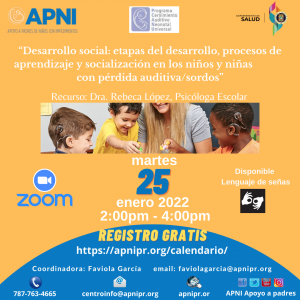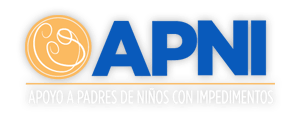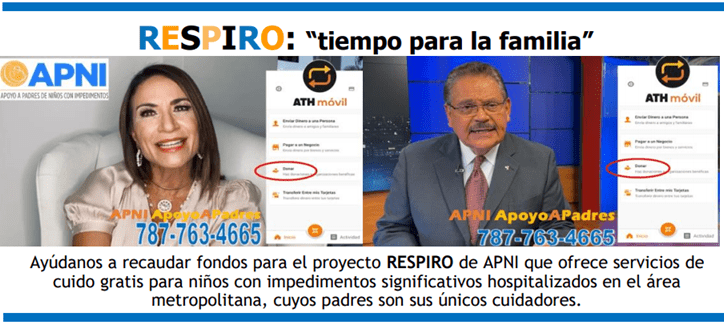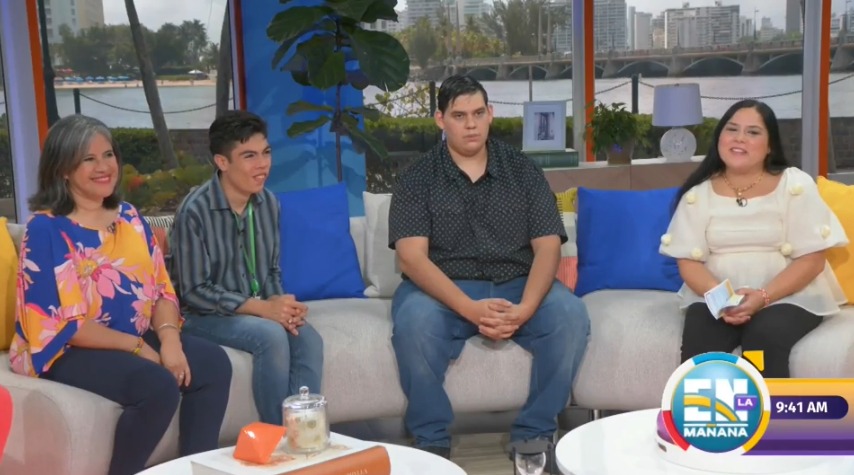Tools
Parent Training and Information Center (PTI) - Subsidized by the Federal Department of Education
This project's primary purpose is to empower families of children and young people with disabilities so that they acquire the necessary knowledge and skills and can advocate for their children's educational services.
We offer guidance, information and training to parents, young people with disabilities and professionals, on the following topics:
TRAINING (Link to calendar)
- Special Education Laws and Procedures
- The Individualized Educational Program (IEP) Process
- Effective Intervention with Children with Attention Deficit
- Effective communication in special education
- Disciplinary Procedures
- Appropriate behavior modification and management
- Prevention of Bullying at School
- Transition from School to Adult Life
- Planning your future
- Reasonable Accommodations and the Alternative Evaluation Process
- Understanding Impediments
- Knowing Autism
March – Annual Conference with topics of interest to families and professionals.
Annually we celebrate the Academy of Parent Leaders in the different Educational Regions or virtually. Through this academy we train a group of parents so that they can assist and support other parents in their respective communities.
We publish an Information Bulletin with topics of interest so that families of children and young people with disabilities and professionals can have relevant and updated information on the needs of this population.
visit the sections:
- ONLINE TRAINING (Webinar's)
- ACTIVITY CALENDAR
- PUERTO RICO DIRECTORY OF SPECIALISTS AND RESOURCES
- NEWSLETTERS
For more information and/or guidance Contact Us.
Special Education Services Coordinators
Through this project, special education services are coordinated for children and youth eligible for the Special Education Program of the Department of Education. As part of it, we offer support, guidance, information and training so that they receive services on time and that families can advocate effectively for their children's educational services.
These coordinators are located in Special Education Service Centers throughout all Educational Regions.
REGION | PHONE | |
Arecibo | 787-817-3393 | |
Morovis | 787-862-5500 | |
Bayamon | 787-780-6444 | |
Caguas | 787-653-2585 | |
Fajardo | 787-860-3228 | |
The stones | 787-860-3228 | |
watery | 787-868-0868 | |
Mayaguez | 787-832-6880 | 787-832-3518 | |
Saint German | 787-264-0330 | |
Ponce | 787-651-1121 | |
San Juan | 787-773-6206 | |
Provisional Remedy | 787-773-6246 | 787-773-6157 |
|
Respite Services
Through this project we offer specialized care services to children and young people with significant disabilities in hospitals and at home so that these families can have time to address particular situations. Prior to providing the service, the needs of the families are visited and evaluated and the same is coordinated. Each family is assigned up to a maximum of 30 hours per year. Which allows these families time for self-care, releasing stress and attending medical appointments. It also helps prevent the emotional burden, social isolation and anxiety that can come with being the sole caregiver 24/7.
As part of this project we also offer guidance and support to families whose infants remain hospitalized in the Neonatal Intensive Care Unit (NICU). While infants receive medical treatment, their parents need support and know what services are available to address their babies' conditions.
For information and coordination of services you can call 787-763-4665.
Direct Relief
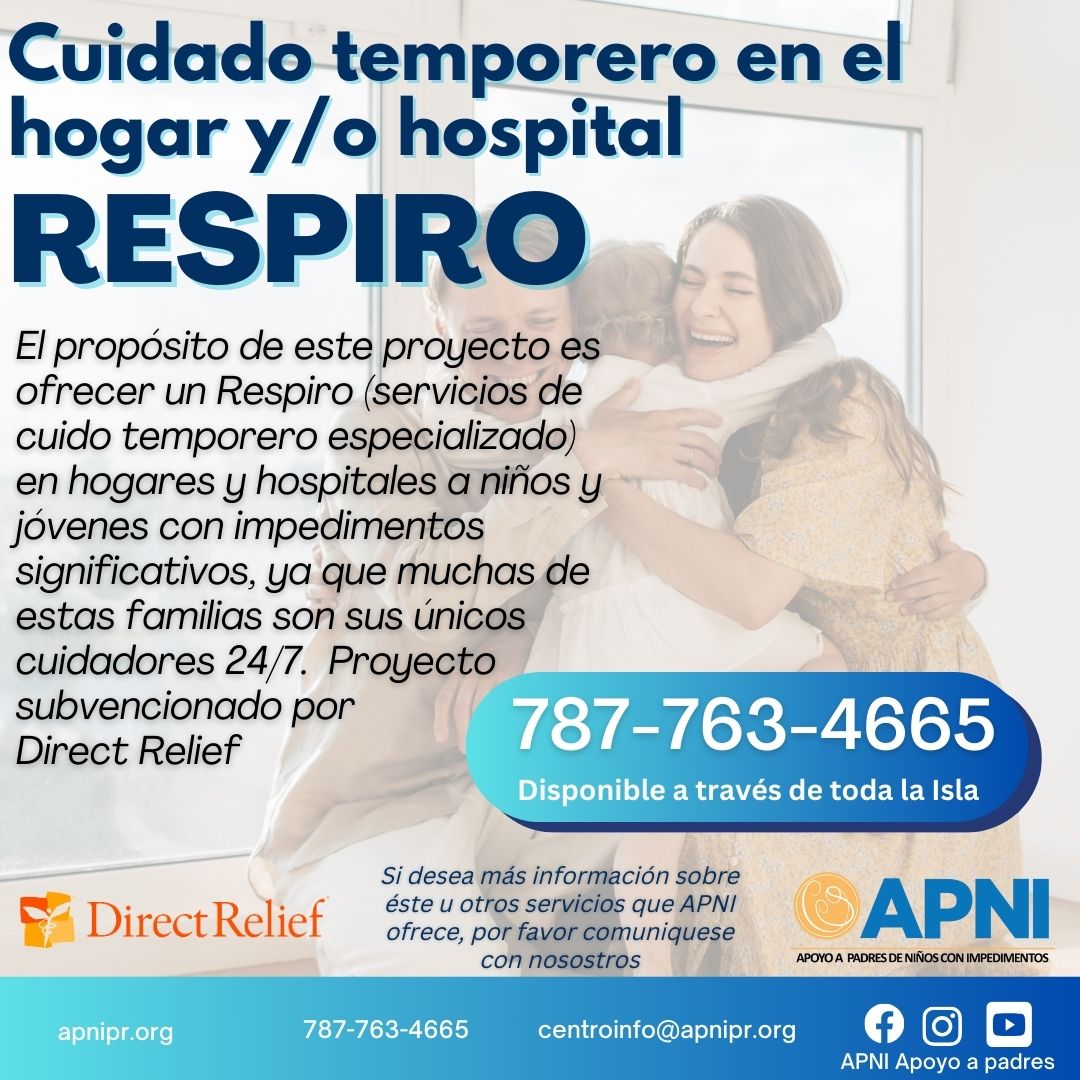
Advocacy Services
Through Advocacy services we offer parents and caregivers of children and young people with disabilities, guidance, advice and support by a group of Advocates, trained in special education laws and procedures.
These assist families in special education processes, including: Programming and Placement Committee (COMPU) meetings, Conciliation Processes, Mediation and Administrative Hearings.
Eligibility Criteria:
- Have a child with disabilities.
- Not receiving educational and related services, as stipulated in the Individualized Educational Program (IEP).
- Failure to comply with the educational rights of students with disabilities, guaranteed by federal and state laws.
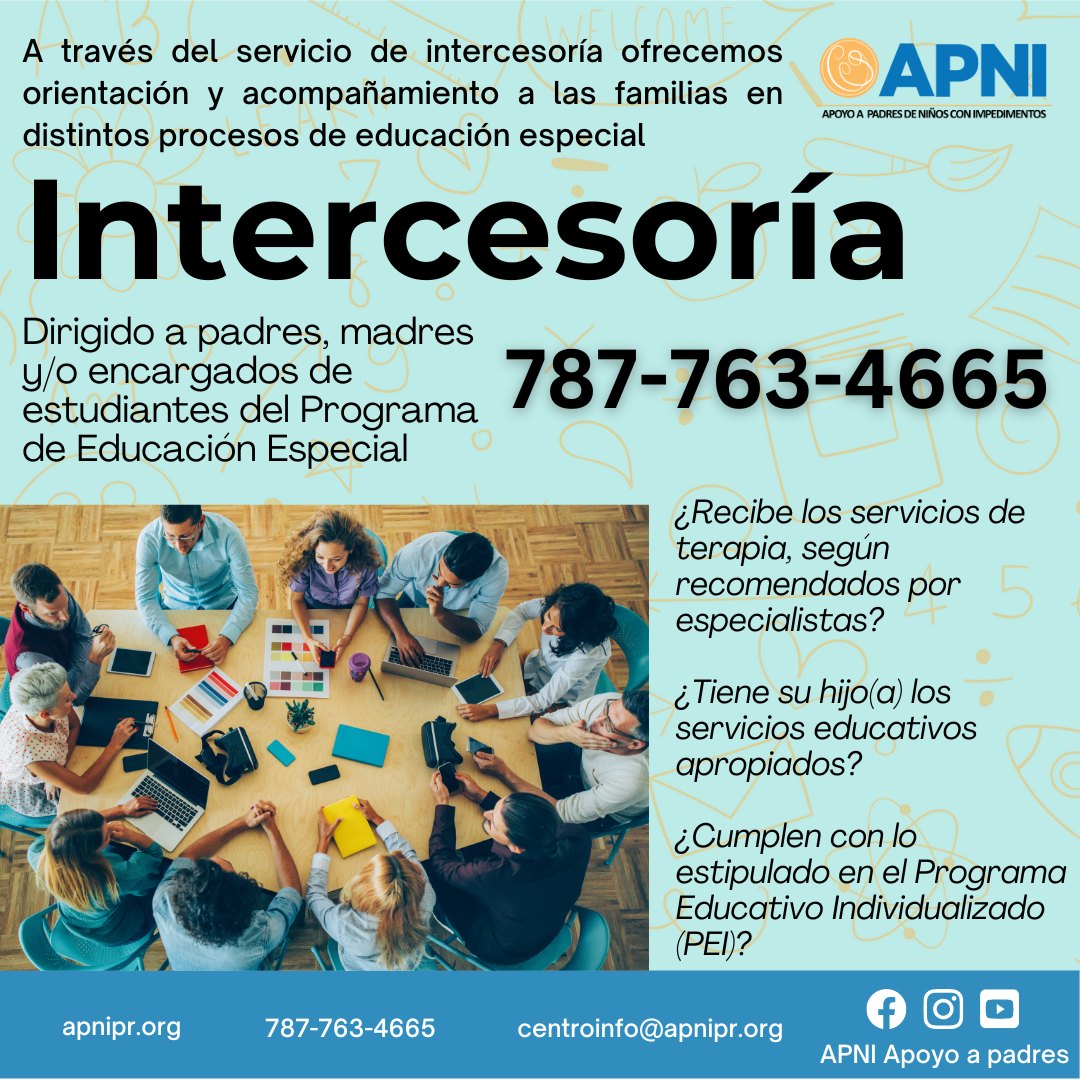
Through this project we are providing teachers, early intervention service providers, counselors, and parents of students with deafblindness with technical assistance, appropriate communication strategies, and science-based educational best practices. This, in collaboration with the National Center on Deafblindness and the Helen Keller National Center, PR Department of Education, Vocational Rehabilitation Administration (ARV), Puerto Rico Technology Assistance Program (PRATP), and the San Gabriel School for deaf children . With the latter, we will be implementing a demonstration model for training teachers in teaching deafblind students with the support of the Helen Keller National Center.
The importance of early identification in children with hearing loss/deaf
This project provides guidance, support and technical assistance services, both to families and providers who provide services to the population with hearing loss/deaf. In addition, training and activities are offered on topics related to the needs and services available for children with hearing loss/deaf.
Early identification of children with hearing loss/deaf is essential to provide them with services according to their needs. Families must be oriented and know the services available, and how to access them. Additionally, it is important to train service providers in everything related to early identification and services available for children with hearing loss/deaf and their families. Also, knowing the needs of these families allows them to provide services with greater sensitivity and empathy.
Social development: stages of development, learning and socialization processes in children with hearing loss/deaf
